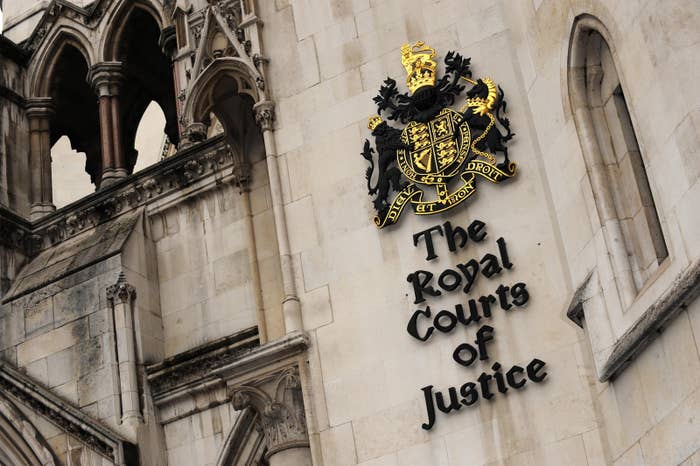
Britain’s equalities watchdog is launching an official inquiry into whether legal aid cuts have left victims of discrimination barred from justice, BuzzFeed News can reveal.
The Equality and Human Rights Commission (EHRC) inquiry comes after BuzzFeed News revealed that not one person with a discrimination complaint against an employer or business was referred to see a legal aid lawyer in 2016–17.
Funding for almost all employment cases was scrapped in 2013 as part of the Legal Aid, Sentencing and Punishment of Offenders Act (LASPO). An exception was made in discrimination cases but a meeting with a lawyer can only be accessed after first being referred over the phone.
The helpline was designed to offer advice and triage cases, but while 2,608 of those who called in were given further legal advice by phone, none were referred to see a lawyer face-to-face to pursue a case.
The EHRC will announce the inquiry on Tuesday ahead of an MPs’ debate at Westminster Hall on the government’s own review of its legal aid legislation.
In an interview with BuzzFeed News, the chair of the EHRC, David Isaac, said the difficulty in accessing free legal advice meant Britain was now faced with a “two-tier justice system”.
“It’s about injustice... If you’re rich you can access justice and bring a case to defend your rights or seek redress if you’ve been discriminated against. If you’re poor or disabled, and the very narrow remit of the LASPO approach excludes you, then what’s happening is people are just abandoning potential claims. They’re not empowered to do anything.”
Isaac said the revelations by BuzzFeed News were among the catalysts of the inquiry. He believes the figures illustrate that the triage system cannot be working.
Isaac compared the phone system to an accident and emergency triage in hospital: “In A&E they’ll send you home if you’ve just got a few scratches and they’ll put a plaster on, and off you go. But most of the cases are referred on quite quickly to somebody who’s specialist and can look at your very specialist issue.
“What’s happening in relation to [legal aid] triage is that so many cases are just being batted back or told they’re not significant… If the triage is a one-stop shop and nobody is referred on, then you’ll actually end up with most discrimination cases not going anywhere if you’re poor or rely on legal aid to bring your case.”
Following the introduction of the telephone gateway, the number of people receiving any publicly funded legal advice at all in discrimination cases, including by phone, fell by almost 60%.
Isaac said: “We’re worried that there seems to be a very significant reduction in the number of discrimination cases that are being supported. A 60% drop in discrimination cases is huge. Why is that? We don’t think there’s been a 60% fall in the amount of discrimination.”
The commission is responsible for promoting and enforcing equality laws in England, Scotland, and Wales. Isaac believes the inquiry is a chance for it to show its teeth.
“One of the things since I’ve been chair that I’ve been really keen that the commission does is use its legal powers more,” he said. “The commission should be a much more muscular regulator and historically we haven’t done as many inquiries as I think we should, so this was an obvious area for us to look at.”
As well as the discrimination inquiry, the EHRC is submitting its own research on the impact of LASPO to the government review. Its research found that the changes, which took legal aid away in most family and welfare cases, have left many faced with little choice but to risk going into debt to pay legal fees, attempt to solve their legal problems on their own, or abandon their claim altogether.
The snapshot research, which is based on more than 100 interviews with people facing legal difficulties in Liverpool, found that very little was known about the availability of legal aid for discrimination cases — or what constituted a case. So much so that one woman who was being interviewed about a welfare matter described a textbook case of workplace discrimination she’d been subjected to after being fired when she was six months pregnant that she had not thought to take legal action on.

The woman, whose identity was protected in the research, said: “He told me last minute I had to get let go. It was like, I was six months pregnant and he was asking me to climb ladders and I was like, no, I’m pregnant and I could fall and injure myself and my, the baby... And he just let me go from then, so.”
The EHRC has also submitted formal recommendations to the review of LASPO, calling on the government to identify where legal aid cuts have had a disproportionate impact on disabled people, women, and people from ethnic minorities. The commission also wants free early legal advice for those who can’t afford it reinstated in family and housing cases, to prevent people from falling through the cracks.
“Legal rights are worthless if you can’t enforce them,” Isaac said, “and for those people who need legal aid to at least examine whether they have an actionable case, it’s really, really important. So one of our recommendations to the MoJ is that they reinstate the initial analysis of cases, so there’s a quick and dirty analysis of whether or not there’s a strong case, and that’s currently denied.”
Isaac believes the UK’s reputation for human rights internationally is tarnished by its record on access to justice and welfare. “There are concerns that the UK is falling below the standards to which it's committed internationally, particularly in relation to welfare rights and access to justice for people with protected characteristics, which is one of the other reasons we’re looking at discrimination.”
The EHRC will publish a major assessment of Britain’s human rights record over the last three years later this autumn, called “Is Britain Fairer?” Access to justice will be one of the areas that the UK will fall down on.
A Ministry of Justice spokesperson said: “Last year we spent £1.6 billion on legal aid — just under a fifth of the department’s budget — and it remains available for a range of discrimination matters. Expert legal advice is available over the phone, as well as face-to-face advice or representation at tribunals where appropriate.
“We are reviewing the changes made to legal aid under LASPO and the introduction of the mandatory telephone advice gateway will be considered as part of this.”

